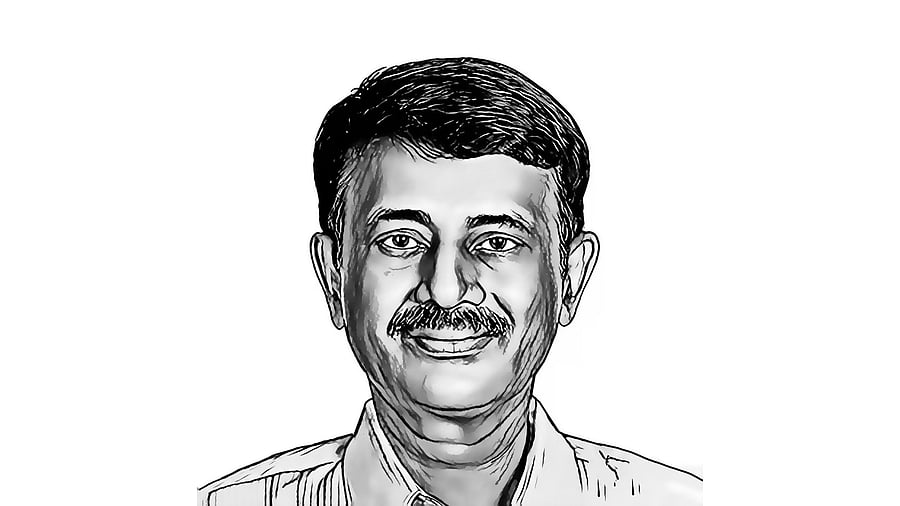
Rajeev Srinivasan is an alumnus of IIT Madras and Stanford. He has taught innovation at IIMs and had stints in Bell Labs and Silicon Valley. He focuses on technology, strategy and foreign affairs  RajeevSrinivasa
The frenetic activity recently around the Ukraine war has brought into sharp focus several things. One is the irrelevance of the United Nations. Two, the fact that Europe has in effect reverted to being a backwater in the scheme of things. Three, the US may have finally escaped from being a British “imperial fortress”. Four, it would be generally a good idea for Europe to bury the hatchet with Russia, as they usually lose wars with Russia.
The UN, which is to say the “liberal rules-based international order” [sic] set up by the winners in World War II, may have reached the end of its useful life. The UN is going the way of its feckless predecessor, the League of Nations. There were resolutions and counter-resolutions at the UN and its Security Council, but none of it mattered. It signals the end of globalisation, and the end of Europe’s brief dominance.
After Volodymyr Zelenskyy made a spectacle of himself in Donald Trump’s Oval Office (which may have been instigated by Keir Starmer and others encouraging Zelenskyy to, as it were, stand up to Trump), there was the remarkable, hastily organised summit in London to drum up support for Ukraine. Alas, it showed instead the relative impotence of western Europe: despite their brave words, they cannot defend Ukraine without US support.
The participants were: Britain, France, Germany, Poland, Denmark, Sweden, Italy, Turkey, etc and Euro-grandees such as Ursula von der Leyen. It is unclear whether this motley crew can raise more than a few infantry brigades/squadrons of aircraft, and some munitions. Enough perhaps for a peace-keeping force after a standstill/ceasefire, but not for a defensive force if war were to continue.
A major problem with Europe is that it lives off old glory. There was no reason to include both Britain and France in the UN Security Council with veto power after WWII, except for misguided American generosity. But there is a much bigger problem: after a brief ‘European Century’ (or to be precise, three or four centuries) of global importance, they are reverting to their natural, diminished state.
The economic centre of gravity of the world, according to McKinsey and The Economist, has moved decisively to Asia from where it was in the post-war era (somewhere in the Arctic Sea near Iceland around 1950 and 1960). The Industrial Revolution enabled European conquest, causing a break in the pattern of Asian prominence.
The magisterial Economic History of the World by Angus Maddison for the EU showed how India was the biggest economic power in the world from 1 CE (where they started their study) up until the 1500s or 1600s. India and China dominated the world economy until European colonialism hollowed out both, especially India. Now, the pendulum is swinging back. And with economic power comes military power, as well as influence.
My contention is that Europe isn’t really a separate ‘continent’, but only an appendage to Asia, and it should be called “Northwest Asia” henceforth.
A major reason for British power, apart from their guns, steel and ruthlessness, was their cunning use of far-flung ‘imperial fortresses’ such as in Malta, Gibraltar, Bermuda, Halifax, St Helena, Mauritius, Singapore, etc from where they could project power around the world. Interestingly, they were able to gaslight the United States into being another such fortress despite formal independence. Whitehall has led Foggy Bottom by the nose. In effect, NATO has been the instrument for this.
The US now seems to have woken up, and is pushing back. Starmer was told by Trump that the best outcome is for the war to end and the misery to stop for Ukraine, despite loss of territory. In any case, territory in Europe has been very fluid, and they have been fighting interminable wars there such as the 30 Years’ War, 100 Years’ War, etc. Notably, the Crimean peninsula was ‘donated’ to Ukraine by Khrushchev, himself a Russian-speaking Ukrainian.
There are age-old blood feuds in Europe. I realised this in the Soviet days when I had a study partner in grad school, a Ukrainian-American woman. By mistake, I referred to her as a ‘Russian’ and she was most offended. I think this is because western Europe has been fighting with Russia forever, based partly on race (Russians are seen as ‘tainted’ by Asian blood) and religion (Russian Orthodox Church vs Catholics and other Protestants).
Unfortunately for them, western Europeans have continually lost their wars to Russia: most notably, Napoleon and Hitler were decimated. It would be best for all concerned if the EU/NATO and Russia were to make peace; otherwise, they will both end up dominated by China.